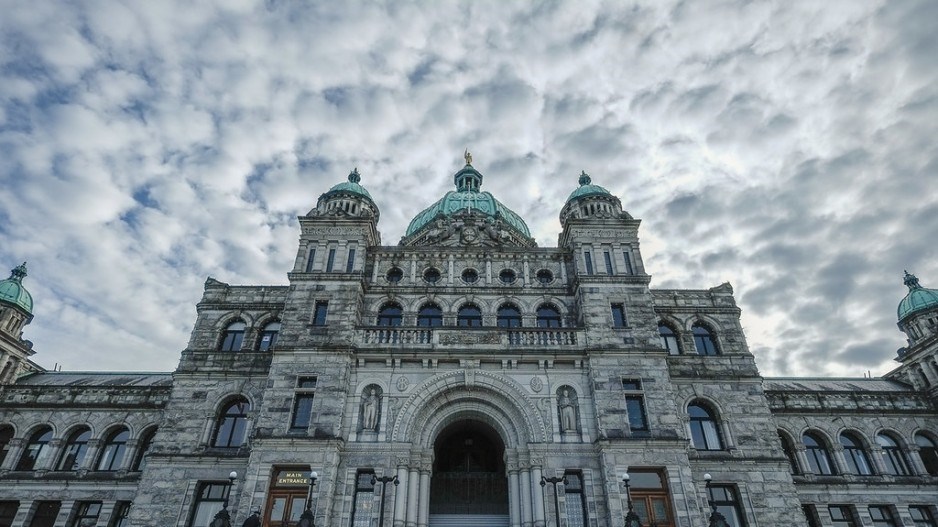The Cullen Commission public inquiry into money laundering, which reported findings and recommendations one year ago on June 15, cost B.C. taxpayers $18.6 million.
Was it worth it?
B.C. Supreme Court Justice Austin Cullen’s report contained 101 detailed recommendations to improve regulation of casinos, real estate, financial services, lawyers, accountants and notaries, and to step up enforcement, including criminal and civil asset forfeiture.
However, the NDP government proceeded in March on just a trio of Cullen’s recommendations, after making public the controversial decision to not charge a key figure in B.C.’s money laundering scandal.
Special prosecutor Chris Considine cited gaps in federal anti-money laundering laws for declaring that it was unlikely alleged Richmond loan shark Paul King Jin could be convicted. Jin had sent his lawyer to the inquiry, but was not called to testify.
James Cohen, the executive director of Transparency International Canada, was among those with participant status during the three-year inquiry.
“At the end of the day, Commissioner Cullen, he didn't find a specific guilty party there, and people were disappointed by that, how could all of that money be moved around without somebody knowing?” Cohen said. “Because there wasn't a specific person to land all responsibility on, people missed part of the message, which was there was a lot of willful blindness going on.”
During the legislature’s spring session, Premier David Eby’s government tabled a bill to regulate B.C.’s nearly 600 money services businesses (MSB), including background checks at currency exchange and money transfer firms. The Civil Forfeiture Act was amended to create so-called unexplained wealth orders that will require defendants to prove their assets weren’t acquired through crime. The third prong was establishing a corporate beneficial ownership registry.
Works in progress, but Cohen said they will be “powerful.”
“Could they have gotten things out earlier, maybe the MSB law, beneficial ownership?” Cohen said. “You'll do better to get it right than rush it. But we are where we are now and it's a matter of saying, let's move forward with what we have and see how well they work.”
The province also passed a new Gaming Control Act last year, to limit cash buy-ins at casinos and require gamblers making large transactions to declare the source of their funds.
“Work is actively underway on other recommendations,” said a statement from the Ministry of Finance. “While some of the recommendations fall outside of the purview of the province, work is underway with the federal government, regulators, and stakeholder organizations to support their implementation as well.”
Less than two weeks after Cullen’s report, both Eby and the NDP government suddenly had other priorities when Premier John Horgan announced his retirement. Eby, the driving force behind B.C.’s anti-money laundering campaign, quit as Attorney General in July in order to seek Horgan’s job. He eventually became premier in November.
The anniversary of the report’s release went by without fanfare. Eby’s only public appearance was to promote a First Nations solar and wind power program with BC Hydro.
One of Cullen’s key recommendations was to hire an independent anti-money laundering commissioner to monitor, research, advise and report annually about the battle against dirty money.
Instead, there are four bureaucrats inside what is called the “anti-money laundering secretariat,” and they report to a Deputy Minister. The head is Michele Jaggi-Smith, who was the executive director of the Independent Gambling Control Office and Cullen Commission Inquiry Project from January 2020 to January 2022. She was previously the Passenger Transportation Branch registrar.
Cohen wonders if Cullen made such a large recommendation in order to “move the needle with the federal government,” which eventually promised in the 2023 budget to open a Canadian Financial Crime Agency.
“That would be even better to have a centralized national body that has a national view of these issues, that can collect the information and is transparent to the federal government to provide reports to Parliament, a forward-looking analysis on anti-money laundering,” Cohen said.
Cohen admitted he is disappointed that the NDP’s beneficial ownership registry for residential real estate carries a public search fee of more than $10 plus tax. Likewise, Cohen said the NDP took a “major step backwards” seven months before the report, by imposing a $10 application fee for freedom of information requests.
Eby had often credited journalists for using the FOI process to expose money laundering under the BC Liberal government. As premier, however, he has kept the fee.
“Canada already has very naturally weak access to information laws, and we're in a bad state of secret-by-default in this country,” Cohen said. “There is a mentality across the board for tight lips, restrict everything, when the government, across all jurisdictions, bar some very sensitive issues, should be open by default.”
Foreign interference by the Chinese government and its proxies has dominated discourse nationally in 2023, sparking calls for a registry of foreign agents and a public inquiry.
“Just because somebody is backed by a foreign entity is not necessarily, in and of itself, malfeasance, it's just we need it to be transparent if you're lobbying on behalf of a foreign government,” Cohen said. “Governments talk to governments all the time, let's just have it out in the open.”
He said there needs to be a fulsome investigation of allegations that money flowed from the Chinese government into Canadian political campaigns. He pointed to the governments of Azerbaijan and Qatar that used “clandestine corruption” to achieve their goals.
"Corruption as a means of statecraft is very much alive and well in the world. So it's what are we doing to safeguard, what are we doing to set up measures to protect ourselves from that?” Cohen said.




